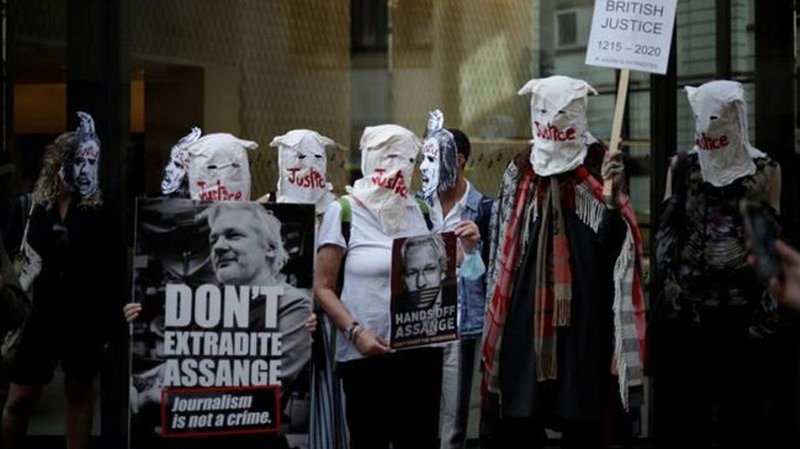
UK judge to rule on US extradition bid for Julian Assange
LONDON — A British judge will decide Monday whether WikiLeaks founder Julian Assange can be extradited to the United States to face espionage charges over the site’s publication of classified American military documents a decade ago.
District Judge Vanessa Baraitser is due to give her ruling at London’s Central Criminal Court, following a three-week extradition hearing in the fall.
U.S. prosecutors have indicted Assange on 17 espionage charges and one charge of computer misuse. The charges carry a maximum sentence of 175 years in prison.
Lawyers for the 49-year-old Australian argue that he was acting as a journalist and is entitled to First Amendment protections of freedom of speech for publishing leaked documents that exposed U.S. military wrongdoing in Iraq and Afghanistan.


